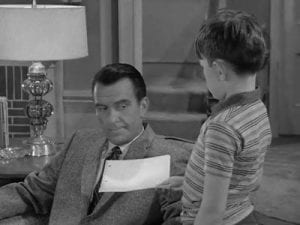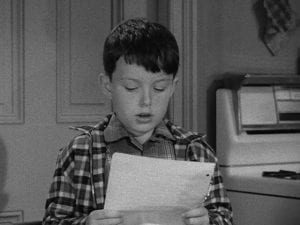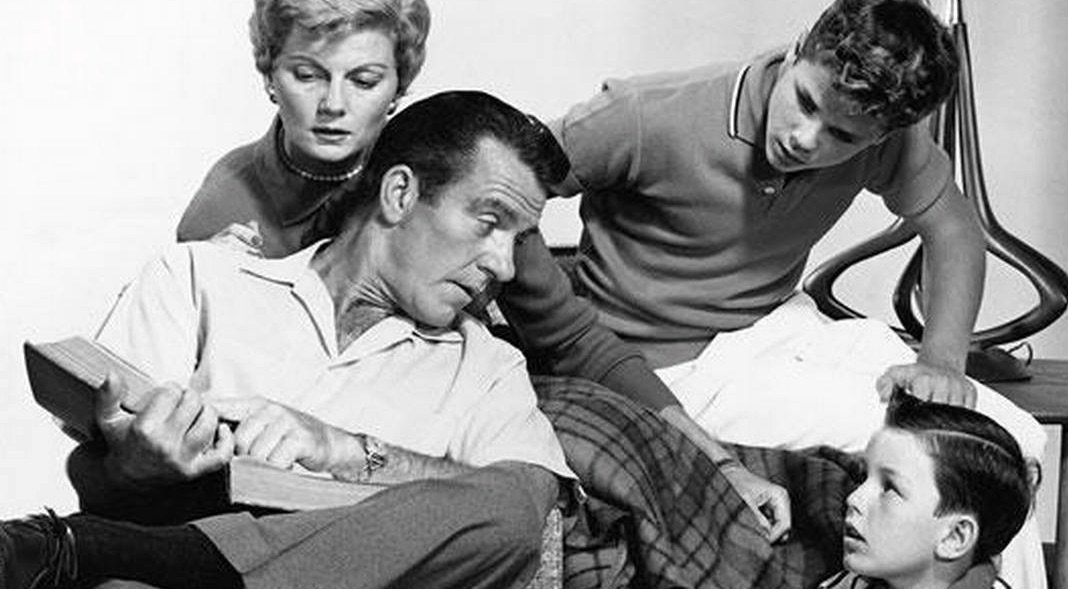Plagiarism in Pop Culture: Leave it to Beaver
Or rather, DON'T leave it to The Beaver...

Leave it to Beaver is a situation comedy that ran from 1957-1963. With 235 episodes over 6 seasons, the show is widely considered to be a seminal family sitcom and the one that set the formula for many, many shows that came after.
The show focused on the Cleaver family, where parents Ward and June did their best to raise their elder son Wally and son brother Theodore, who is better known as “The Beaver”. The Beaver, for his part, tends to be both innocent and mischievous at the same time, always finding himself in trouble but, with the help of his family, working through the problems.
Compared to The Facts of Life (which we discussed last week) and more current sitcoms, Leave it to Beaver largely avoided difficult topics and focused instead on wholesome, simple problems that could be trivially solved in the half-hour slot while creating just enough conflict for the plot and the jokes.
One of those topics was plagiarism, which came up in the first episode of the second season, entitled Beaver’s Poem. The episode, which first aired in 1958, approached the issue in a way that is radically different from The Facts of Life but one that fit well with the way Leave it to Beaver handled issues on the show.
The Plot

The episode begins with Ward and June preparing to head to the movies, but the plans are interrupted when The Beaver tells his dad that he has a poem due for school tomorrow. With the evening’s plans crushed, June heads off to read the paper (after warning Ward not to write the poem for him) as Ward sits down at his desk to help The Beaver write the poem.
Ward takes time to ask The Beaver about when he was given the assignment (three weeks prior) and why he waited until the night before to start. With no good answers to be had, Ward sets out to help The Beaver write the poem but finds that he’s up against a wall. After writing the first line, “I would like to be a bear,” The Beaver is completely unable (or unwilling) to come up with a rhyme and a second line.
Frustrated and exhausted, Ward sends The Beaver to bed with a promise that they’ll do the poem in the morning. However, when he sits back down, Ward is struck with inspiration and winds up writing the poem himself.
The next morning, The Beaver simply recopies his father’s work in his own handwriting, despite the protests of his mother, and turns it in at school. The matter seems resolved until Beaver returns home and tells his family that his teacher loved the poem so much that he’s receiving an award for it and will be asked to read it in front of the whole school.
Ward and June decide that they can’t let The Beaver go forward with reading the poem and decide to put a stop to it. They talk to The Beaver, who is confused about what he did wrong, but he eventually agrees he can’t claim the award. Ward then goes to the school and talks to The Beaver’s teacher, explaining the situation. She agrees to forgive the transgression in exchange for a new, original work by The Beaver.
At the end of the episode, The Beaver says he’s confident his new poem, which is about a duck, will win a prize too, since he is the only student turning in a poem at all.
Understanding the Plagiarism

In some ways, the episode does an excellent job humanizing this particular kind of plagiarism. Many parents struggle with just how much help they should give their children with their homework (especially with young children) and this episode captures that particularly well.
The scene with Ward and The Beaver working on the behavior is long, awkward and extremely relatable. A parent, trying to help their child, keeps running into a wall as a child, who put off the assignment for weeks, seems to be incapable of making any headway.
No doubt many parents can relate to just that, and many were tempted to do exactly what Ward did.
But it’s after the plagiarism that things begin to fall apart. Though June expressed minor misgivings about Ward writing the poem for him in advance, neither of them were truly concerned until after The Beaver won the award. It was then that the problem demanded both of their full attention.
Then, once the plagiarism was reported, it was treated very lightly. While The Beaver is a young child and didn’t actually do anything wrong beyond simply following his father’s orders, there were no stern words or consequences for Ward.
The matter, seemingly, was laughed off as a misunderstanding and the worst that happened to Ward was having his poem laughed at by others.
The one place where there was some honesty was when The Beaver was talking to his parents about why he couldn’t accept the award. He didn’t understand that, though he copied the poem, he didn’t write it and was genuinely confused by what he did wrong.
While studies show that children understand plagiarism as wrong by the age of 5, that’s not to say the understanding is universal. Furthermore, it’s easy to see why a child, who was just following his dad’s orders, would be confused about what was wrong.
So while the episode did a decent job showing the emotions and confusion that impacts the child in the situation, the father, who is the one that actually did something wrong, suffered very little for his actions and was not held to task at all, other than being the butt of a few jokes over his poem.
Bottom Line
All in all, Leave it to Beaver handled plagiarism in the same way it handled other plot devices, by distilling them into an easily-resolved misunderstanding with zero real consequence.
Still, the portrayal of how the plagiarism happened will hit home with many parents, and the reactions The Beaver has to his parents change of heart are understandable. But while the outcome of the plagiarism fits with the show’s tendency for clean, family-friendly endings.
When it’s all considered, this show didn’t treat plagiarism any more or less seriously than other topics. Leave it to Beaver just was never meant to be a vehicle for exploring complicated social issues, and that includes plagiarism.
However, it’s that lack of serious underpinnings that have left the show, despite its place in history, as being treated as little more than saccharin TV. If anything, it’s interesting to hold this episode against the Facts of Life one we discussed last week and see just how far sitcoms moved in 20 years when it comes to tackling difficult issues.
More Plagiarism in Pop Culture (In Reverse Order)
Want more Plagiarism in Pop Culture? There Are 40 others to check out!
- Ferris Bueller
- Randy Feltface
- Bob’s Burgers
- Columbo (Part 2)
- Columbo (Part 1)
- Death in Paradise (Part 2)
- American Auto
- Saturday Night Live
- The Conners
- Death in Paradise (Part 1)
- Lobachevsky
- Back to School
- The Golden Girls
- Young Sheldon
- The Goldbergs (Part 2)
- King of the Hill (Part 2)
- Yesterday
- King of the Hill (Part 1)
- The Kids Are Alright
- Big Fat Liar
- Coco
- Re-Animator
- Elementary
- Instinct
- Fresh Off the Boat
- The Goldbergs (Part 1)
- Lou Grant
- Star Trek: The Original Series
- Arthur
- Criminal Minds
- Mystery Science Theater 3000
- Cheers
- WKRP in Cincinnati
- Boy Meets World
- Law & Order: Criminal Intent (Part 2)
- Law & Order: Criminal Intent (Part 1)
- Jane the Virgin
- The Waltons
- Leave it to Beaver
- The Facts of Life
Want to Reuse or Republish this Content?
If you want to feature this article in your site, classroom or elsewhere, just let us know! We usually grant permission within 24 hours.
